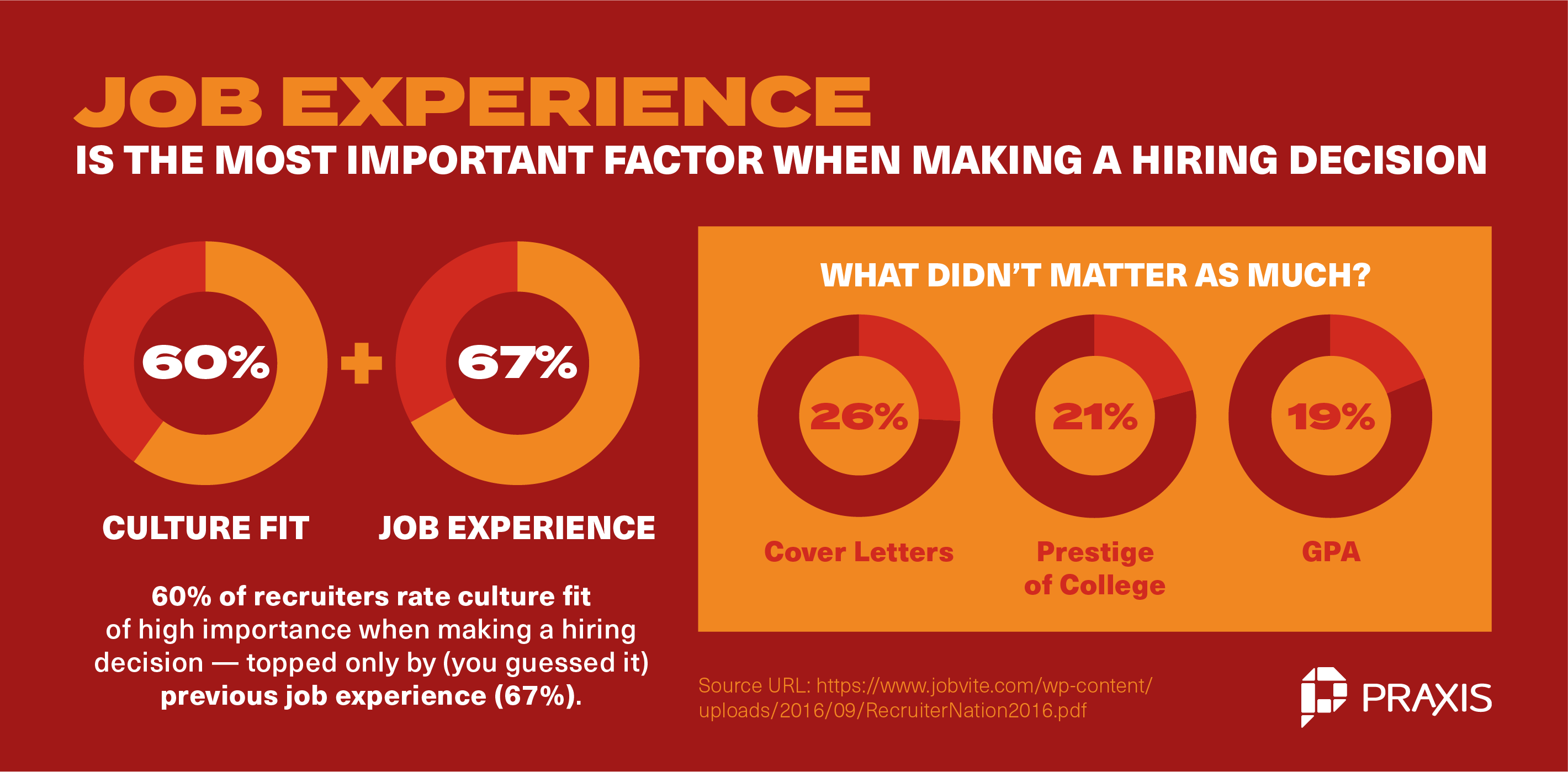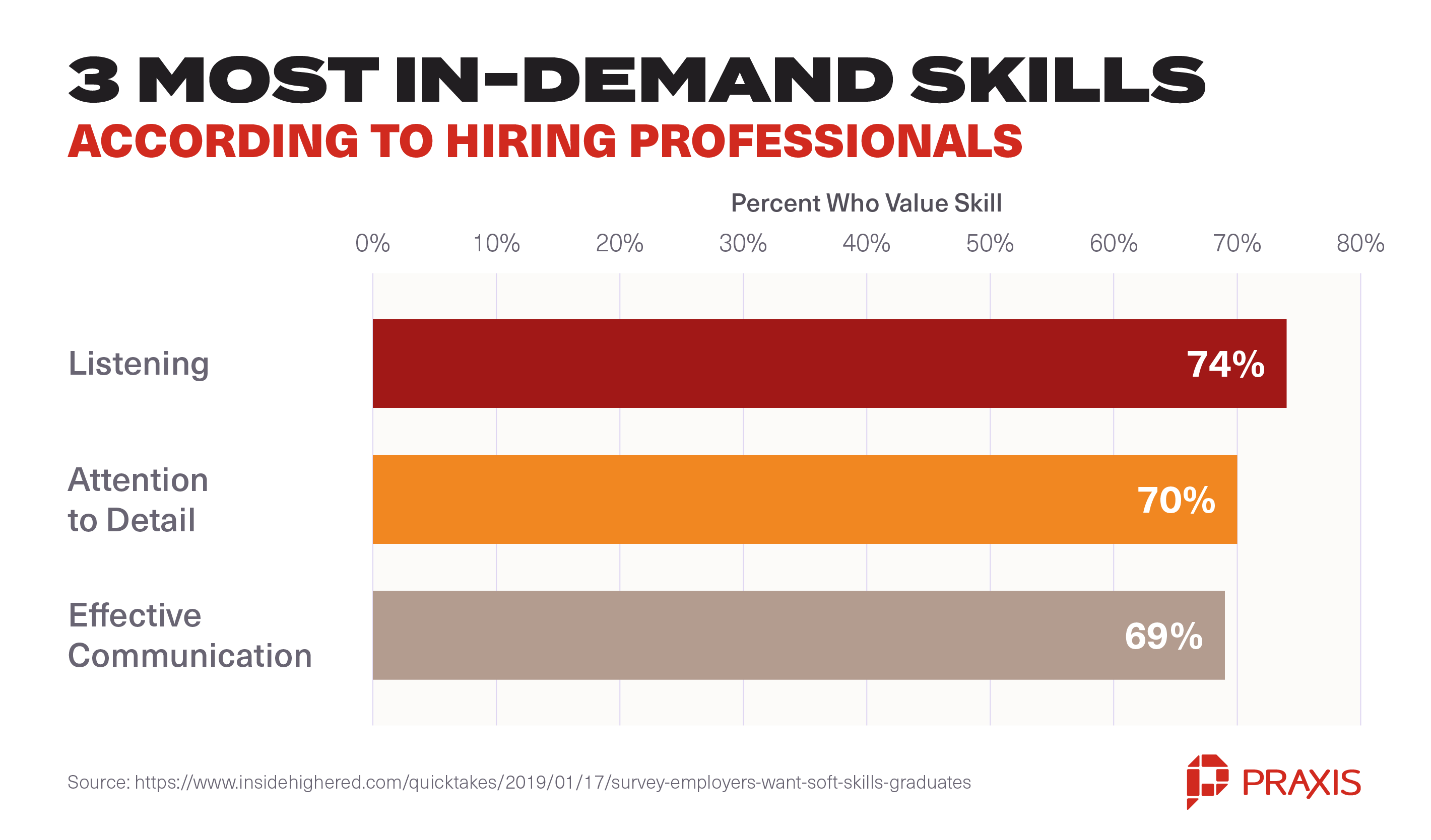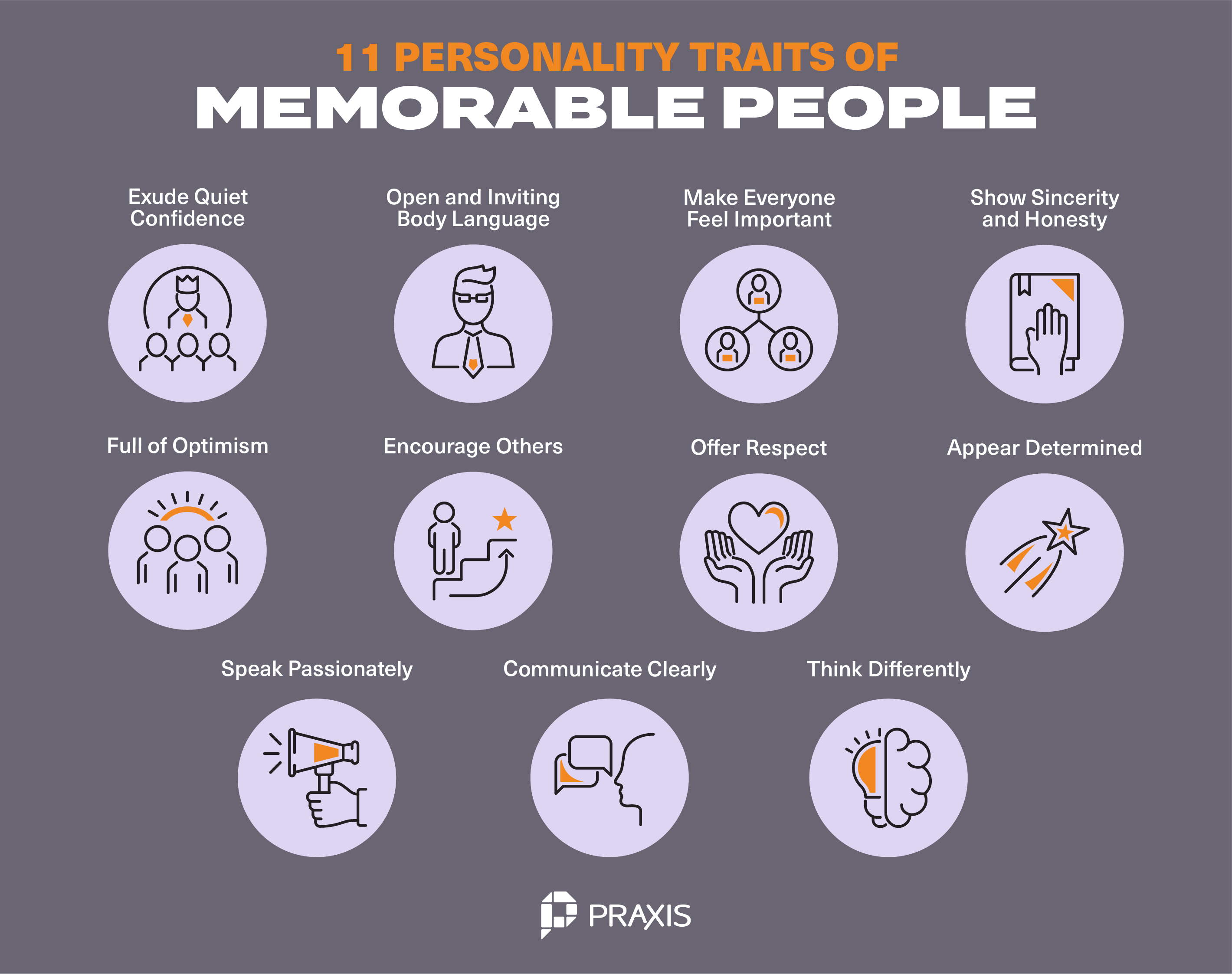You need relevant experience to get a job. But you need a job to get relevant experience.
Does this sound familiar?
If you’re stuck in this never-ending loop and worried your lack of experience or qualifications are the problem, this guide is here to help in four ways:
- Explain what “relevant experience” actually means.
- Identify the one thing many employers care about most (yes, more than experience).
- Teach you how to land a job with a tailored pitch instead of worrying about interviews.
- Give you actionable tips to nail your pitch delivery.
Let’s start at the top.
What Does “Relevant Work Experience” Actually Mean?
Relevant experience is your past work experience that in some way relates to the job you’re applying for.
If you’re applying for a sales position, prior jobs you’ve had with a sales component would be considered relevant experience. Jobs without a sales component, especially jobs that weren’t customer-facing, would be considered less relevant. In this example, prior experience as a line cook at a restaurant wouldn’t be considered as relevant.
That doesn’t mean your work experience as a line cook is irrelevant to the sales position you’re applying for. “Relevant experience” is a flexible term, and what’s considered relevant depends on two factors:
- What your prospective employer is looking for in a candidate.
- How you frame and present your prior experience.
You can’t do much about the first factor, but you can do a lot about the second. That’s what the remainder of this guide covers in detail.
Even better, when you frame and present your experience the right way, you can steer the conversation toward what the interviewer is looking for, giving you the best chance of landing the breakthrough job you need to start your career.
Forget About Interviews and Embrace the Tailored Pitch
Most people take a passive approach to hunting for jobs: they look for job listings and apply by sending their resume and a cover letter, and then sit around waiting for an email or call inviting them for an interview.
This approach might work if you have a resume full of relevant experience, but it won’t cut it if you don’t have the X number of years of experience (or degree) the listing stipulates.
The problem with this passive approach is that it places the emphasis on what’s missing instead of what you can offer. In fact, most companies use applicant tracking systems (ATS) to filter applicants based on specific keywords in their resume and cover letter.
This means if your resume doesn’t mention the qualifications, skills, and experience contained in the listing, there’s a good chance your resume and carefully crafted cover letter will never even reach human eyes.
This is why the tailored pitch strategy is so critical. Creating a pitch that is specifically tailored to the company you’re applying for allows you to control the narrative and shift the focus from what you don’t have to what value you can create for the company if they hire you.
How to Create a Tailored Pitch
If you really want to go above and beyond—which is exactly what employers want to see—create a tailored pitch for each role you apply for.
Your pitch gives you the chance to sell yourself far more effectively than an interview.
A tailored pitch leads with the value you’ll add to the company and tackles any objections an interviewer might raise before they can bring them up. This eliminates the guesswork for the company and puts what you’re bringing to the table front and center.
It follows this format:
“Here’s what I can do for you and your company. I realize that I don’t have the most experience/formal credentials, BUT what I do have is more valuable. Here’s why…”
Here are step-by-step recommendations that our participants use on a weekly basis to land interview (and job offers):
1. Get very specific about the companies you want to work for and the roles you want.
2. Tailor everything to these companies. Research what they’re currently doing and identify ways you can help them improve.
3. Create a clear value proposition that demonstrates what you can do for them. For instance, if you’re applying for a sales job, compile a list of leads, or for a marketing job, write an analysis of their current efforts and gaps you would address.
4. Create a visual pitch deck that highlights your strengths and how your experience and unique perspective makes you the right person for the job. Showcase any similar projects you’ve completed successfully in the past, as this will serve as evidence that you can do the job you’re proposing.
5. Use cold outreach. Find the hiring manager or a senior manager in the department you’re targeting and reach out to them personally. Tell them you have an idea you’d like to pitch them and suggest meeting times for a first call or interview. Be adamant about following up until you get a response back.
6. Deliver your pitch, using the tips below to make a favorable impression.
Creating a killer pitch takes extra effort, but it probably takes less effort than continuing to apply to job after job hoping to get a call-back.
Confidence—Not Experience—Holds Most Job Applicants Back
A common issue with many qualified applicants isn’t their lack of work experience, work ethic, or ambition, but their lack of confidence when selling themselves. They often don’t think their past work experience is either relevant or respectable enough to be considered professional experience.
Here’s a great reason to throw those concerns out the window.
According to a 2016 survey by Jobvite—a software company for professional job recruiters—there’s one factor hiring managers care about nearly as much as work experience: culture fit.

“Culture fit” is a catch-all term for the intangibles a candidate brings to the table:
- Confidence
- Professionalism
- Social skills
- Communication skills
- Comfort working as a member of a team
- Fascinating interests or hobbies
- Obvious excitement about the job they’re applying for
- Demonstrated knowledge of what the job entails
As one interviewer wrote, “Fit is the person I would be most excited to have walk into the office the next day.”
Can those things really make that much of a difference?
They do to people like Richard Branson, the high school dropout who founded Virgin Group and now is worth $4 billion. Branson wrote a whole article about the importance of hiring for fit:
“The first thing to look for when searching for a great employee is somebody with a personality that fits with your company culture. Most skills can be learned, but it is difficult to train people on their personality. If you can find people who are fun, friendly, caring and love helping others, you are on to a winner.”
How about another example?
In 1994, Brian Scudamore, the founder of 1-800-GOT-JUNK, launched his first junk removal company—The Rubbish Boys. Frustrated by stalled growth and people he didn’t enjoy working with, Scudamore decided to shake things up. He fired all 11 employees and started from scratch, assembling a new team of people he actually liked based on one simple question: “Would I enjoy grabbing a beer with this person?”
(If you aren’t 21 yet, don’t worry. Scudamore also uses the BBQ test.)
Both examples show successful CEOs of major companies who value personality and fit over skills and experience. That’s a trend we’re seeing among hiring professionals in all sorts of industries, so don’t let a lack of confidence in your on-paper accomplishments hold you back.
Tips to Nail Your Pitch Delivery
A great application gets you in the door. Once you’ve got the hiring manager’s interest, you have your chance to wow them during the interview. Here’s how it’s done.
1. Be Prepared
Benjamin Franklin said, “Failing to prepare is preparing to fail.”
You’ve managed to get your foot in the door and have an opportunity to give your pitch, and now it’s time to make the most of the opportunity by showing up prepared:
- Know both the job description and desired skills inside-out.
- Research the company, the position you’re applying for, and the interviewer (if you know who they are). Learn about relevant history, products and services the company offers, what other employees have said about the company on sites like Glassdoor, and anything else that shows you’ve put in the effort and want the job.
- Identify problems that you can solve for the company.
- Dress professionally, look presentable, and be well-groomed.
- Be ready to address any obvious gaps between the desired qualifications and your work experience. For each, show what you’ll do to close that gap, such as enroll in a training course to learn a skill.
When you come prepared, you’re showing your work ethic. For many employers, that says more about you than anything else.
2. Be Confident and Proud
If you don’t take yourself seriously, no one else will either—including your audience.
No matter your prior job experience, speak confidently and proudly of the work you did, regardless of your job title or responsibilities. You had a job to do, and you showed up every shift to do that job to the best of your ability. You gained experience, learned new skills, and were an asset to your employer.
3. Show Off Your Soft Skills
Let’s revisit Richard Branson’s quote from earlier—specifically, this sentence: “Most skills can be learned, but it is difficult to train people on their personality.”
The “skills” Branson is talking about are technical abilities or hard skills—things like report writing, data analysis, and how to use specific computer programs or tools. You can take online courses or get on-the-job-training to master each.
And just as there are hard skills, there also exist soft skills. These are lumped in with personality in Branson’s quote and include things like problem solving, communication, and leadership.
Soft skills are becoming increasingly valuable to employers with three specific soft skills topping the list.

Fortunately, the pitching process gives you ample opportunity to demonstrate your abilities to listen, pay attention to detail, and communicate effectively.
Enjoying this content? Drop your email below and we’ll send you our best free resources on succeeding without college:
4. Answer Questions with Concrete Examples
There’s a time and place for non-commital corporate speak and business jargon, but keep it to a reasonable level when answering questions. Focus on giving direct answers with concrete examples that show your abilities or prove your understanding of key concepts.
Here’s a great list of 46 common interview questions. Practice answering a few with supporting examples based on your experience.
For example, let’s say the interviewer asks, “What are your greatest strengths?” Avoid regurgitating the same generic answer about your strong work ethic, resourcefulness, and ability to multitask. That doesn’t mean you can’t use those strengths in your response, but the key is to include evidence or an example of a time you used your resourcefulness to get the job done.
5. Be Memorable
Think about a person in your life who everyone seems drawn to. Everyone knows them, everyone likes them, and they make everything look easy.
Seriously, take a second and think of someone you actually know.
Got a person in mind? What about their personality or behavior makes them so magnetic? Why do people remember them after a casual, two-minute introduction?
If we both listed qualities of the individuals we’re thinking about, chances are good that our lists would look very similar. That’s because most of these well-liked, memorable, and charismatic people share several common characteristics:
- Exude quiet confidence
- Open and inviting body language
- Speak passionately
- Appear determined
- Full of optimism
- Encourage others
- Offer respect
- Show sincerity and honesty
- Make everyone feel important
- Communicate clearly
- Think differently
Your goal during the pitching process is to be memorable to the person on the other side of the table.

If you aren’t a naturally smooth and charismatic person, that’s okay. Here are some ways you can make yourself memorable during your pitch.
- Stand or sit up straight. Lean forward slightly, don’t cross your arms, and be relaxed.
- Control the pace of the conversation. Don’t rush through your points. Go slow and methodically, vary your tone, use hand gestures when appropriate, and think of yourself as a storyteller captivating your audience with vivid answers to your audience’s questions.
- Speak with passion and conviction.
- Show interest in both your listener(s) and the company. Before and after your pitch, make conversation about items in the building or in their office, ask about the company culture, and give them a chance to speak.
- Don’t be afraid to share personal information or experiences that paint a more well-rounded picture of who you are. If you have any unusual or quirky passions or hobbies, find opportunities to work them in naturally.
For more actionable tips, check out the How to Pitch Yourself episode of the Self-Directed podcast.
The Easiest Way to Overcome Your Lack of Professional Experience?
Your lack of relevant experience doesn’t have to sentence you to working minimum wage jobs for the rest of your life. With the strategies in this guide, plus some effort, you side-step the traditional interview process, emphasize your relevant most skills, kick ass during the pitching process, and take your first steps toward your professional career.
But there’s an even easier way to overcome your lack of relevant experience: Get some!
If you’re stuck in the “can’t get a job without experience, but can’t get experience without a job” cycle, project-based learning programs like Praxis give you a chance to kill two birds with one stone:
- First, build required skills with a six-month professional development bootcamp.
- Then, gain real-world, relevant experience with a six-month paid apprenticeship program.
After completion of the program, you’ll have both the skills and experience needed to start your career. Praxis graduates have a 93% job placement rate after the intensive, 12-month experience with an average first year income of $50,000 and no college loan debt.
Ready to see if Praxis is right for you? Learn more about self-directed learning to discover how Praxis can help kickstart your career, today.
Tags:
Career DevelopmentJanuary 8, 2024
